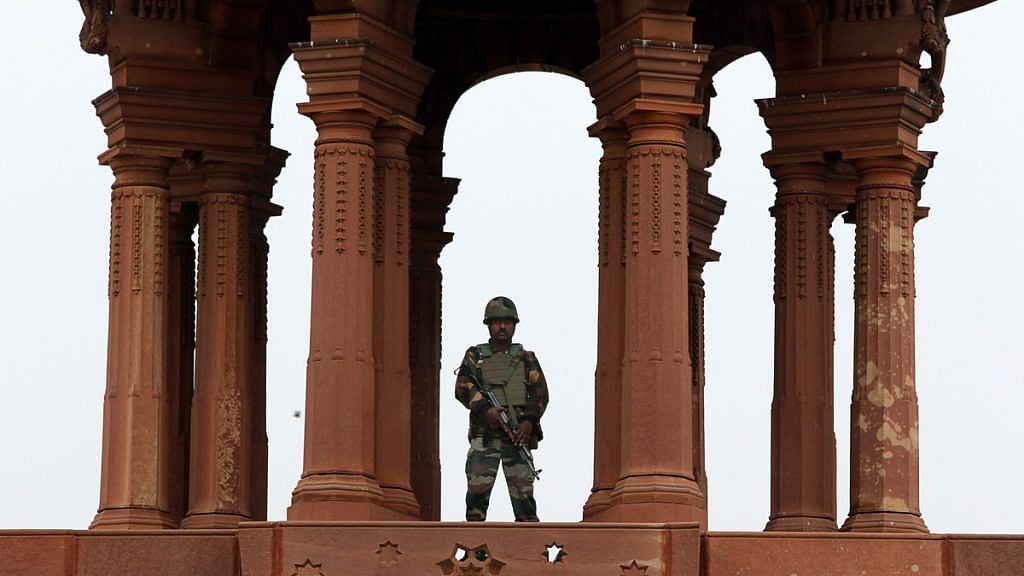The reality of war has hit an emotionally charged India sooner than expected. The euphoria after the Balakot air strikes has given way to a sombre realisation of the war’s ugly face after Pakistan’s expected response, which resulted in a Mig-21 Bison jet being shot down and an IAF pilot, Wing Commander Abhinandan Varthaman, being taken captive.
Although the armed forces of both India and Pakistan seem to have been mobilised, there has not been any significant military operation, except the ongoing firing on the LoC, since the aerial engagement Wednesday.
Is it the proverbial lull before the storm or are both nations likely to explore options other than war? International opinion is asking for restraint and will soon start exerting pressure on both countries to disengage and start talks.
Also read: Why Wing Commander Abhinandan Varthaman stands a good chance of surviving Pakistan ordeal
India has made it clear that its war is against terrorism and not against the Pakistan state and its people. It has achieved a significant success at Balakot and the first 24 hours certainly belonged to India. As I had predicted earlier, Pakistan responded militarily and shot down one Indian aircraft although it claimed to have downed two. In the aerial engagement, Pakistan lost an F-16.
At this juncture, both India and Pakistan can claim victory and engage in talks with the other. Pakistan’s Prime Minister Imran Khan has publicly made the offer. Given that the Pakistan’s army virtually runs the PM’s office, it can even be assumed that Imran Khan made the offer under its guidance.
The problem for India is Pakistan’s track record. Despite all the earlier accords, peace talks and promises, Pakistan has remained steadfast in pursuing its strategy of trying to seize Jammu and Kashmir through a proxy war driven by terrorism. Even America has failed to prevent it from doing the same in Afghanistan.
Also read: Escalating to de-escalate is India’s new strategy with an irrational Pakistan
Pakistan, basically, is seeking reversion to the status quo so that it can pursue its strategy after a possible tactical pause. India can set preconditions for talks in the form of tangible action under direct international monitoring. These can be banning of terrorist organisations in Pakistan, dismantling terrorist infrastructure, arresting the leaders of Lashkar-e-Taiba/ Jaish-e-Mohammed/Hizbul Mujahideen and putting them to trial. Pakistan is unlikely to accept such preconditions without military ‘compellence’ being forced on it.
In my view, India is left with no option but to persevere with its strategy of forcing ‘compellence’ on Pakistan, no matter how long it takes. India has its options open. Strategic surprise may have been lost but material surprise by concentrating overwhelming force at the adversary’s vulnerable point can always be achieved multiple times. India is the bigger economy and a carefully calibrated prolonged war below the nuclear threshold will economically and militarily bring Pakistan down to its knees.
Political consensus is of paramount importance to pursue the strategy for a prolonged war of ‘compellence’. Military strategy must not be driven by political compulsions. What is at stake is bigger than political power. The war must be managed professionally and not driven by statements at political rallies. The National Security Council (NSC) must meet on a daily basis.
Also read: India must explicitly seek escalation to establish a deterrence regime
In the last 60 hours, we have looked like rookies as far as managing the information war is concerned. By the time our spokesperson came on the stage, Pakistan armed forces’ statement was already all over the domestic and international media. There is a need for a formal military briefing every 3-4 hours. Our media too must be more balanced in its approach.
Friends war is a two way street. There will be gains and there will be losses. These are just the opening rounds. No need to jump up in glee at success or be dismayed after setbacks. Indian Armed Forces have the capacity and the capability. We shall prevail.
— Lt Gen H S Panag(R) (@rwac48) February 27, 2019
In my view, now is the time to remain steadfast and show national resolve. If we miss this opportunity, we will forever have the millstone of Pakistan-sponsored terrorism around our neck.
Lt Gen H S Panag PVSM, AVSM (R) served in the Indian Army for 40 years. He was GOC in C Northern Command and Central Command. Post retirement, he was Member of Armed Forces Tribunal.
